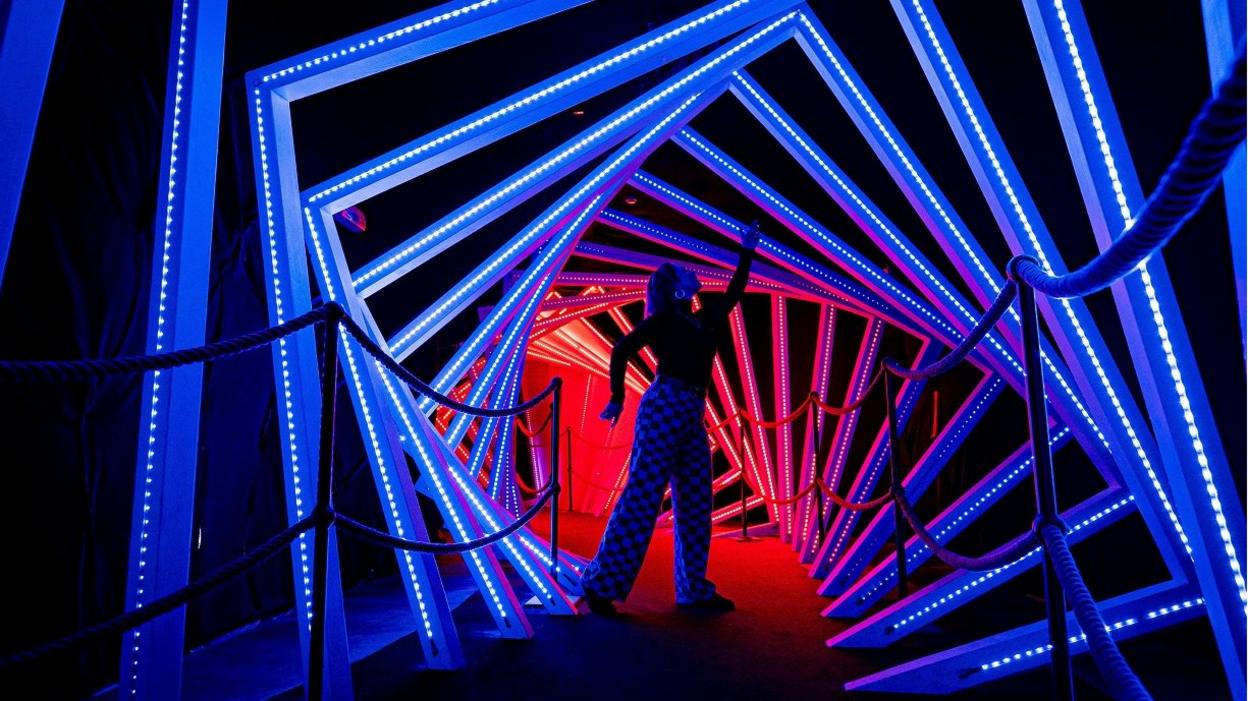Viral Bristol bench plaque 'copied' from London artist
- Published
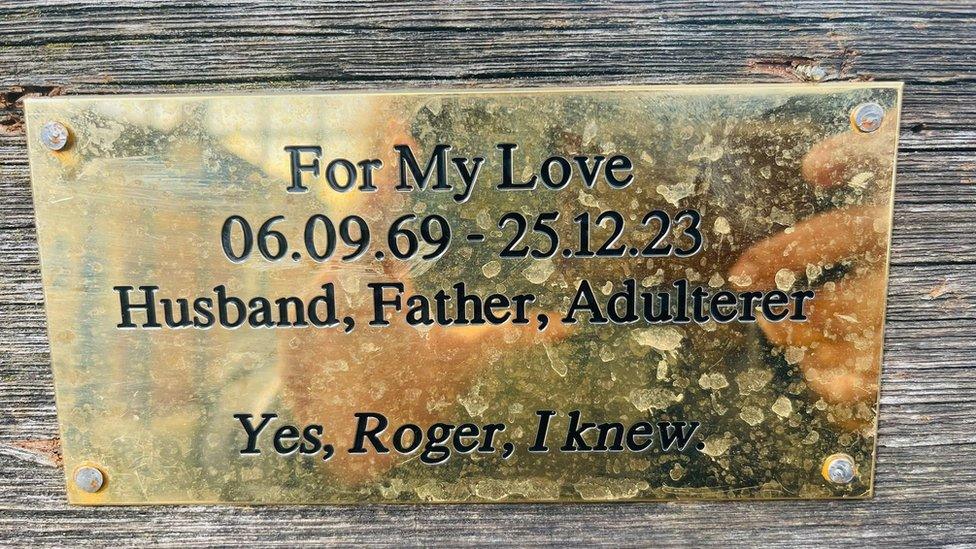
Local residents said the plaque has become a something of a tourist attraction
An artist says a memorial plaque to an "adulterer" is almost a "word-for-word" copy of his art.
The plaque, on a bench on Royal York Crescent in Clifton in Bristol, mentions a person called Roger.
But no-one has claimed responsibility for the plaque, which has been shared widely on social media, and it is unknown if it is about a real person.
Artist The Misfortune Teller has claimed it is a "copycat" version of something he created years ago.
He attributed the copying to "meme culture", but said art is his livelihood and he wants stronger laws to protect it.
The London-based artist, who did not want to use his real name for anonymity, claimed the concept was taken "from one of the first ones" he "mocked up".
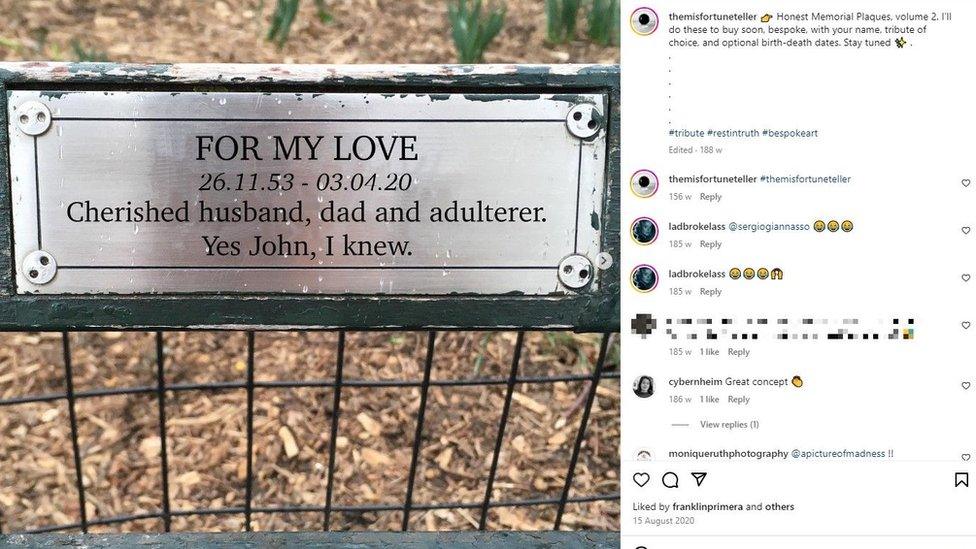
The artist posted the concept on his Instagram page on 15 August in 2020
"I made it four years ago on Photoshop and posted it to Instagram on 15 August," he said.
"They [the bench plaque creator] actually copied it word-for-word apart from a comma. I don't understand the motivation - unless they are a superfan.
"Most people would say 'shut up just enjoy the attention', but this is how I make my living."
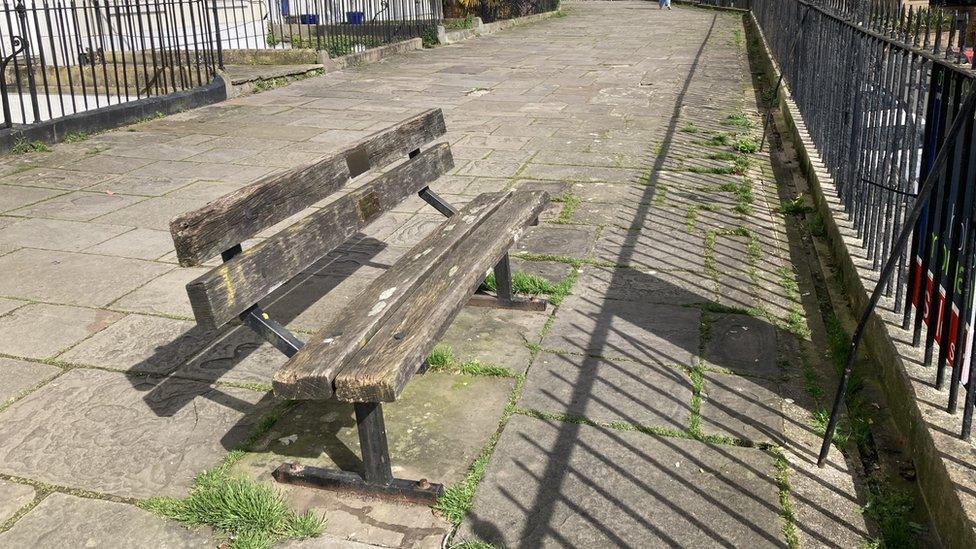
Nobody has come forward yet to claim responsibility for the plaque
Local Clifton residents said the bench has since become a "mysterious tourist attraction".
"The world of funny memorial plaques isn't just mine, but it's a wholesale word-for-word theft," The Misfortune Teller said.
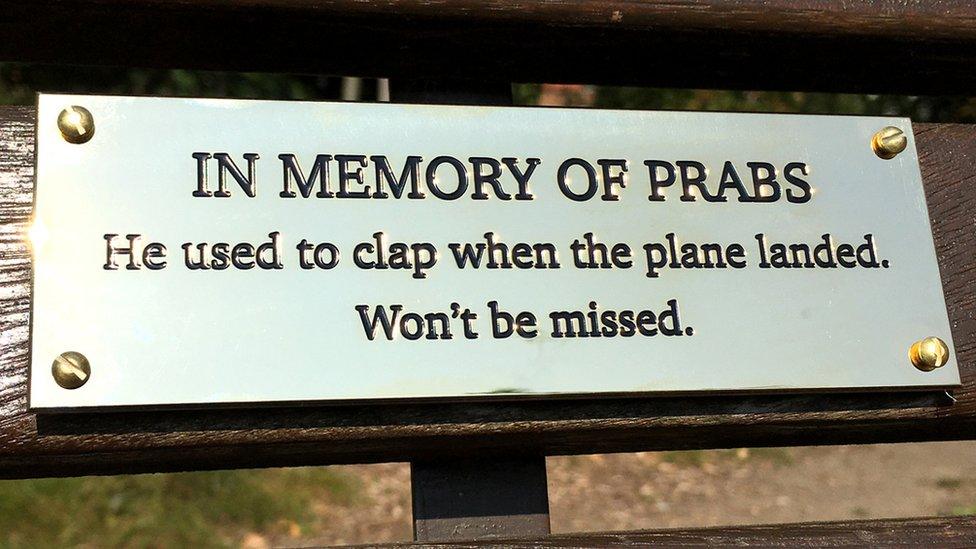
The artist said some of his other pieces have also gone viral in the past
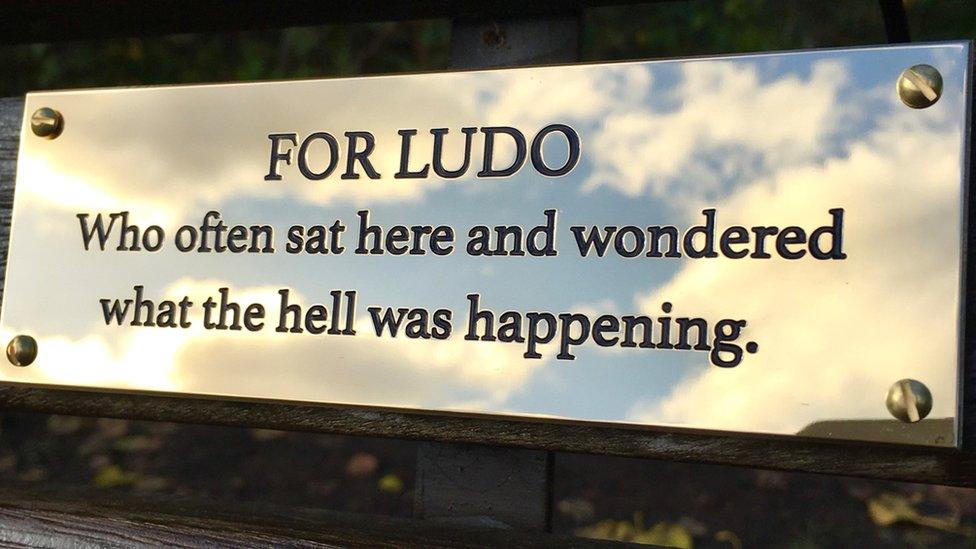
The Misfortune Teller said he wanted to make plaques that were funny and truthful
He said some of his other plaque pieces have also gone viral in the past or have been copied or shared without being credited to him.
"I'm not angry. All I want is clarity," the artist said.
"The meme culture is just so strong that by the time you realise it's been stolen, everybody has shared it and they're 1,000 memes ahead."
He said he hoped stronger laws would be brought in to protect artists from not being credited when their work is copied.

Follow BBC Bristol on Facebook, external, X, external and Instagram, external. Send your story ideas to us on email, external or via WhatsApp on 0800 313 4630, external.
Related topics
- Published11 March 2024
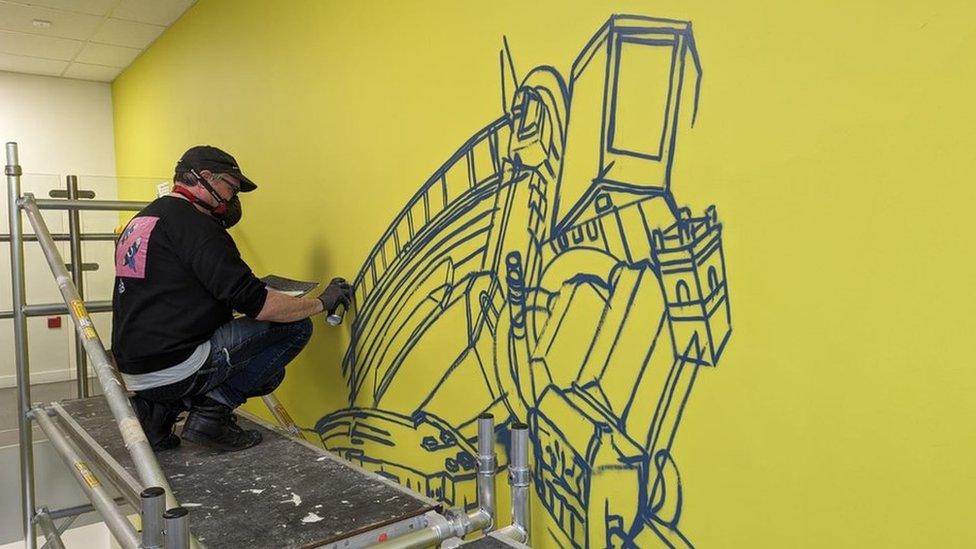
- Published23 February 2024
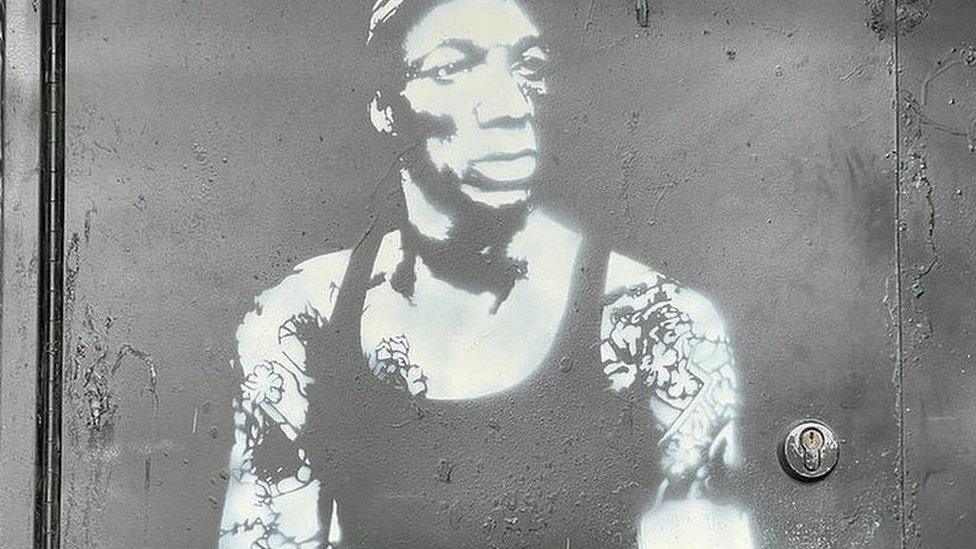
- Published1 February 2024
